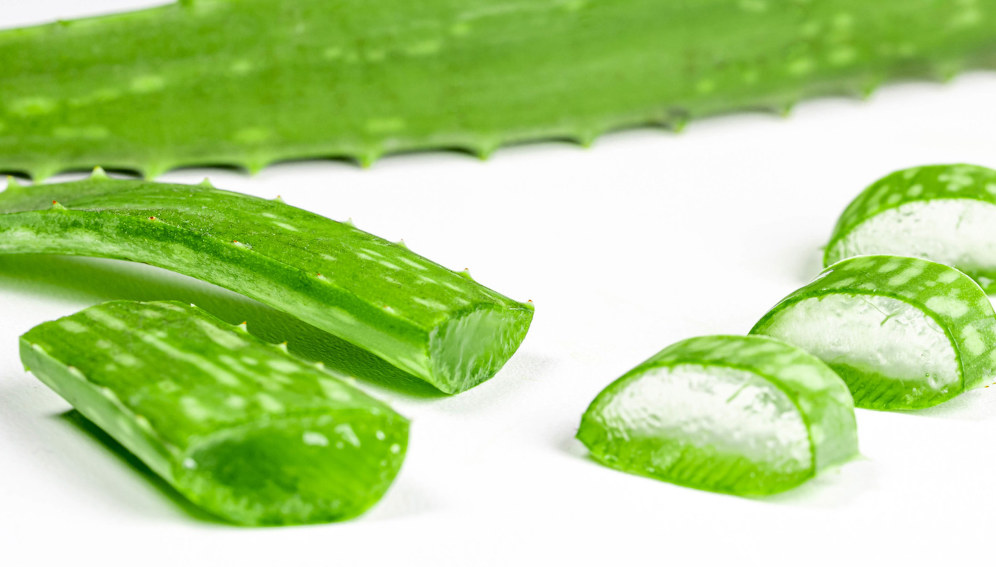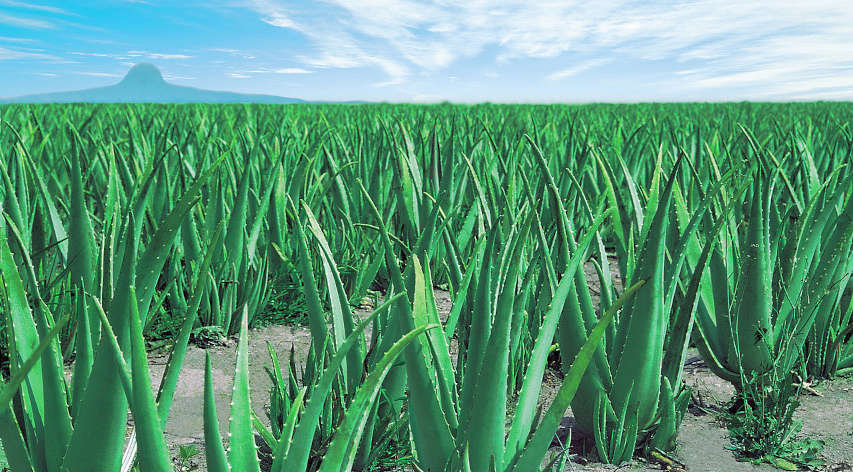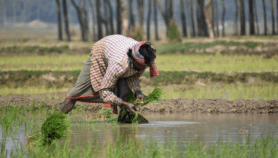01/09/23
Aloe vera peels could fight staple food crop pests

By: Sanjeet Bagcchi
Send to a friend
The details you provide on this page will not be used to send unsolicited email, and will not be sold to a 3rd party. See privacy policy.
[NEW DELHI] The discarded peels of aloe vera can be used as a natural pesticide, helping farmers protect staple food crops from harmful insects, research suggests.
Globally, between 20 and 40 per cent of crop yields are lost to pests, which has a direct impact on food security and nutrition, according to CABI (the parent organisation of SciDev.Net).
Aloe vera is a stemless, cactus-like plant that is widely cultivated in Australia, China, India, Jamaica, Mexico, South Africa, Tanzania and the US. Its gel-like substance is used to heal wounds, sunburns, and skin diseases, and to prevent baldness.
However, aloe vera peels or rinds are considered worthless and usually disposed of as agricultural waste.
“By repurposing the leftover aloe peels that are currently discarded, aloe production can be made more sustainable and contribute to achieving the UN Sustainable Development Goals.”
Debasish Bandyopadhyay, chemistry professor, University of Texas RGV
“It’s likely that millions of tonnes of aloe peels are disposed of globally every year,” says Debasish Bandyopadhyay, an assistant professor in chemistry at the University of Texas Rio Grande Valley, US, and principal investigator on a study to find ways to add value to aloe while reducing waste.
At a meeting of the American Chemical Society this month (17 August), Bandyopadhyay and his colleagues showed how aloe vera peels can act as a natural insecticide, staving off insects from crops such as maize or millet.
“We proved that [aloe] vera rinds’ derived extracts act as a feeding deterrent and eventually kill agricultural pests,” Bandyopadhyay tells SciDev.Net.
He explains that insects do not like aloe vera peels as it contains phytochemicals (chemicals produced by plants) that are toxic for them.
“Insects may be harmed or killed by natural substances contained in aloe peels,” he adds.
“Exposure to these compounds can cause discomfort, illness or even disruptions in an insect’s ability to travel, eat and reproduce.”
The researchers became interested in the potential use of aloe peels as insecticide after visiting a site where they noticed that insects left aloe leaves alone while attacking the leaves of other plants. They hypothesised that aloe peels have specific defence chemicals.
To investigate, they collected and dried out the peels and then produced extracts from the peels with substances such as dichloromethane (DCM), hexane and methanol.



Univera’s aloe farm in Tampico, Mexico. Researchers have become interested in the potential use of aloe peels in insecticide production. Photo by UNIVERA (CC BY-SA 4.0).
Their experiments showed that the DCM extract of aloe peels had substantial insect-killing properties against farm pests, as did six other compounds from the peels.
Significantly, the compounds did not show toxic properties, suggesting that aloe-peel-based insecticide wouldn’t have significant safety concerns for people.
“By repurposing the leftover aloe peels that are currently discarded, aloe production can be made more sustainable and contribute to achieving the UN Sustainable Development Goals,” Bandyopadhyay tells SciDev.Net, citing Zero Hunger as an example.
Economic potential
Chiranjib Chakraborty, a professor at the School of Life Science and Biotechnology, Adamas University in Kolkata, India, believes the findings have huge economic potential and could help promote organic farming and traditional plant medicines.
“The world is now looking at organic farming,” he tells SciDev.Net.
He believes the research findings could support a shift to a more sustainable farming and replacement of chemical-based practice in millions of farms devoted to rice, wheat, maize and millet.
According to a 2021 review published in the journal Molecules, indiscriminate and prolonged use of synthetic pesticides leads to human health issues, water, air and soil contamination, and pest resistance.
Plant-derived pesticides, which are cheap and eco-friendly, are an important alternative to synthetic pesticides, protecting the environment and human health and enhancing crop production.
Chakraborty believes the study opens up avenues for research on other traditional medicinal plants to find scientific evidence of the purported beneficial properties.
This piece was produced by SciDev.Net’s Asia & Pacific desk.















